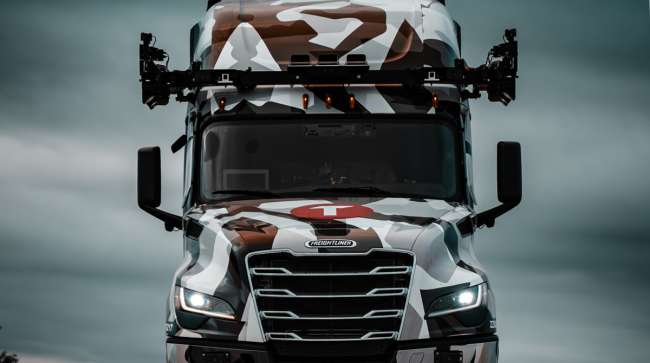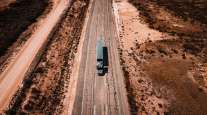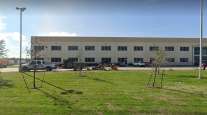Staff Reporter
Torc Robotics Plans Dallas-Fort Worth, Ann Arbor Offices

[Stay on top of transportation news: Get TTNews in your inbox.]
Self-driving truck developer Torc Robotics plans to open offices in the Dallas-Fort Worth metropolis and Ann Arbor, Mich., in the first half of next year as part of an acceleration toward driverless commercial operations.
Concurrently, the Daimler Truck subsidiary is winding down and transferring operations and facilities from its original testing location in Albuquerque, N.M., and technology hub in Stuttgart, Germany.
The company currently has a temporary location in the Dallas-Fort Worth area and is finalizing a lease for a larger new office and autonomous hub, Chief Commercial Officer Andrew Culhane told Transport Topics on Dec. 3.
The Dallas-Fort Worth office and autonomous hub will be the anchor of Torc’s Phase 1 network ahead of the planned 2027 launch of commercial driverless operations, he said. Torc’s first planned lane for the vehicles will be Dallas to Laredo, Texas.
In October, Torc announced it had begun validating its autonomous driving technology at speeds up to 65 mph in a closed-course environment with no one aboard the truck.
Culhane told TT the validation triggered the shift in locations, saying the coming months were set to be “the most exciting phase” in the company’s history. Culhane has been at Torc for 17 years.
Torc currently has more than 750 employees, compared with eight when Culhane started. The company has some critical mass in Dallas-Fort Worth and Ann Arbor already, and is deepening its focus on its North American operations, he said.

Culhane
“We are financially responsible and looking at what sets Torc up for success here in North America,” he said.
The company is aiming for 100 employees in the Ann Arbor area. Culhane said he expects steady growth in both Ann Arbor and Dallas-Fort Worth.
The company is shutting down its European operations simultaneously. Existing employees in Europe will have to reapply for new jobs. There has been interest in jobs in Ann Arbor and Dallas-Fort Worth from existing Stuttgart employees, said Culhane, while declining to comment on the cost of the European shutdown.
“The Albuquerque and Stuttgart locations were critical for our development phases, as we tested on New Mexico highways and developed specifications for our product in Stuttgart. As we shift focus to testing on our launch lane from DFW to Laredo and developing a world-class team, we need to locate our resources in the areas that align with our future plans and lay the foundation for scaling the business to our customers’ needs,” Culhane noted in a Nov. 21 blog.
(Torc Robotics)
Ann Arbor was chosen because of its proximity to Detroit automotive and high-tech talent, according to Director of Talent Acquisition Meghan Juanarena. “We are also looking forward to tapping further into one of the nation’s top 10 robotics programs at the University of Michigan,” she added.
Torc plans to hold interviews in the week starting Dec. 9, including for engineering operations leadership roles. Other job openings include roles as software, automotive software, machine learning and development engineers.
Beyond hiring additional staff, Culhane expects more Torc trucks on the road in Texas and the introduction of additional product features each month in the first half of 2025.
“It is the both extremely exciting and boring push towards product launch,” he said.
Want more news? Listen to today's daily briefing above or go here for more info
The company also plans to add more pilot programs in 2025, he said. Torc has ongoing pilots with Schneider and C.R. England, the latter of which focuses on transportation of refrigerated goods.
Schneider ranks No. 9 on the Transport Topics Top 100 list of the largest for-hire carriers in North America. C.R. England ranks No. 42 on the for-hire TT100 and No. 6 among refrigerated carriers.
By the end of 2025, Culhane said, Torc expects to have a lot more visible operations, all of which will be focused on the Interstate 35 corridor. There also will be more hub-to-hub operations up and running in addition to the pilots, he said.
The company expects to begin operating on public highways in Texas with no driver on board starting in 2026 ahead of the 2027 commercial operations launch.



